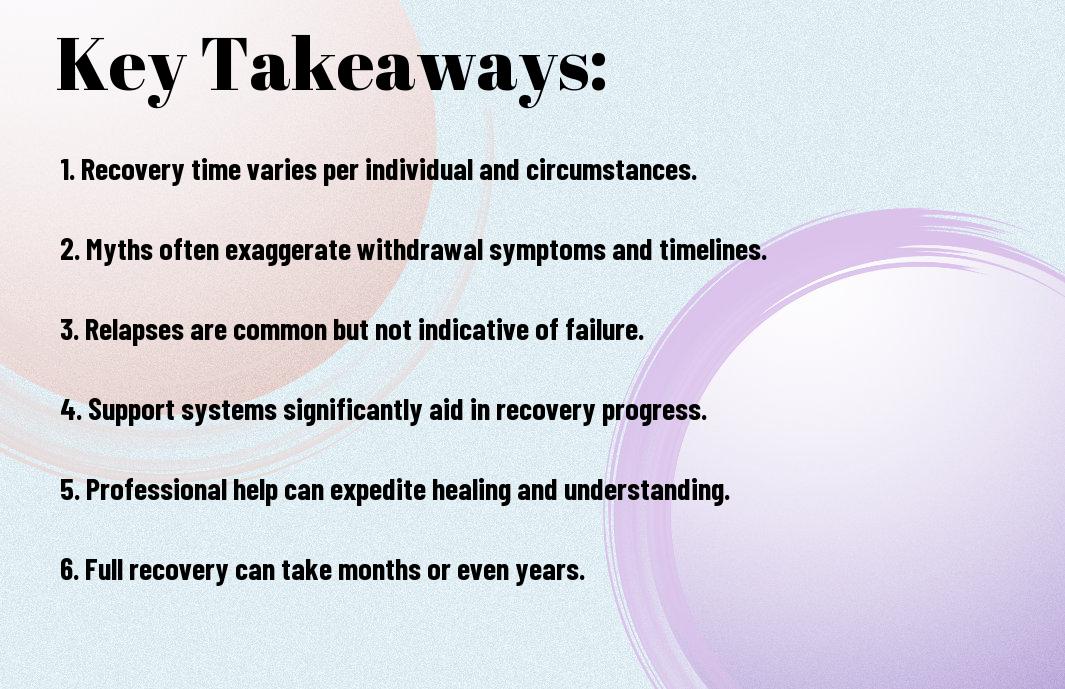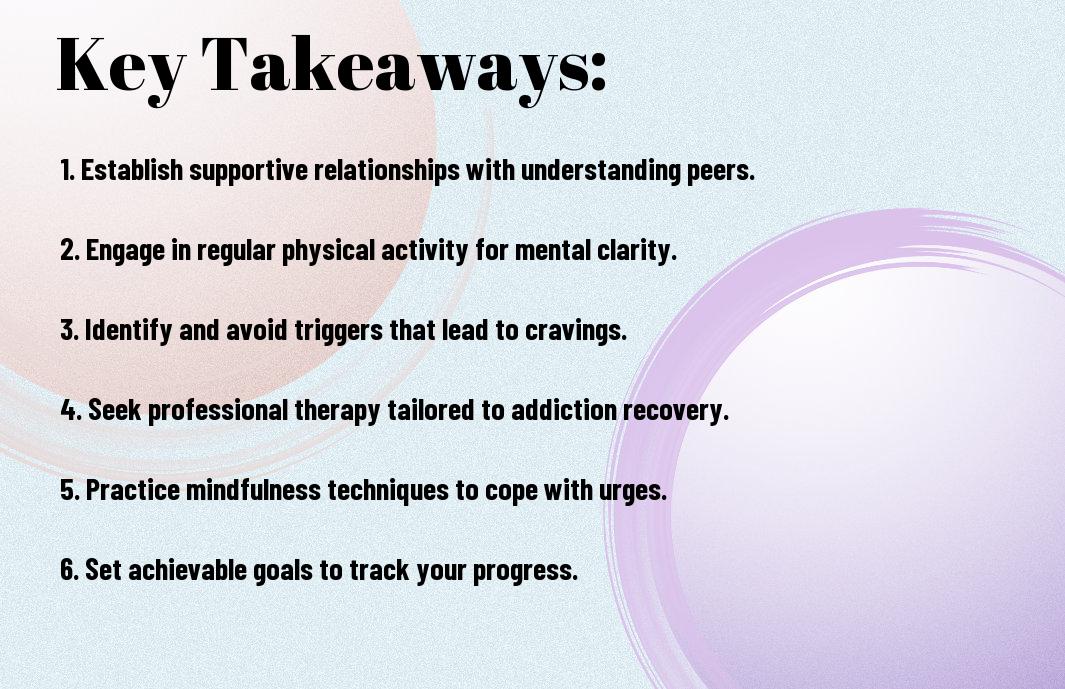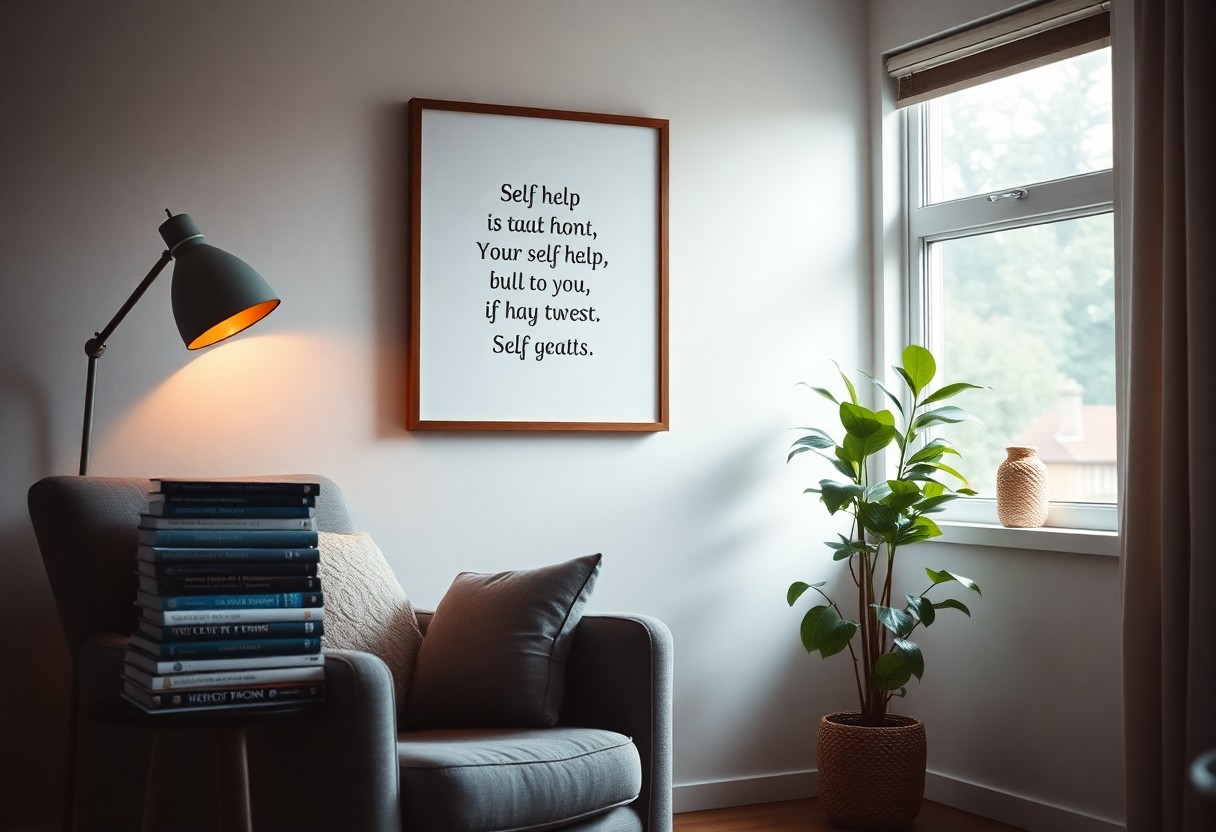It’s necessary to recognize the impact that delaying recovery from porn addiction can have on your life. Prolonging the process can lead to ongoing emotional distress, relationship issues, and hindered personal growth. Understanding the dynamics of this addiction is key to realizing why taking timely action is imperative for your mental health and overall well-being. As you explore the reasons behind this delay, you will empower yourself to make informed choices that can facilitate a healthier and more fulfilling life.

Key Takeaways:
- Recognizing the impact of porn addiction on mental health is the first step toward recovery.
- Delaying recovery can lead to worsening emotional and psychological issues, such as anxiety and depression.
- Building a support network, including friends, family, or professional counselors, is vital in the recovery process.
- Understanding triggers and developing coping strategies can significantly assist in overcoming addiction.
- Recovery may involve addressing underlying issues such as low self-esteem or relationship problems.
- Engaging in healthy, fulfilling activities can replace the time and energy spent on porn, aiding recovery.
- Consistent self-reflection and setting achievable goals can foster a sense of progress and motivation.

Understanding Porn Addiction
The journey to understand porn addiction begins with recognizing its pervasive influence on your life. As a behavior, it can affect your mental health, relationships, and overall well-being, often leading to a cycle of compulsivity and regret. Understanding the nature of this addiction is vital for achieving lasting recovery.
Definition and Scope
By defining porn addiction, professionals identify it as a compulsion to consume pornographic material, leading to negative consequences in your personal and social life. This addiction can manifest itself in various forms, and understanding its scope is necessary for effective treatment.
Psychological and Behavioral Aspects
After recognizing the definition of porn addiction, it’s important to examine into the psychological and behavioral aspects associated with it. Your relationship with porn can often be tied to deeper emotional issues, making it necessary to address these underlying factors for meaningful recovery.
Also, various psychological factors contribute to porn addiction, including anxiety, depression, and low self-esteem. You may find that your use of porn serves as a coping mechanism for stress or emotional pain, reinforcing a cycle that leads to further isolation and emotional distress. Furthermore, behavioral patterns may emerge, such as increased secrecy and compulsive usage. Acknowledging these elements is fundamental to your journey in overcoming addiction and fostering healthier relationships with yourself and others.
The Impact of Delay on Recovery
You may not realize that each day you delay confronting your porn addiction prolongs your struggle and complicates your recovery journey. Procrastination can lead to a cascade of negative effects, stalling your progress and reinforcing unhealthy habits. The longer you wait, the deeper the cycle of addiction can entrench itself, making it increasingly difficult to reclaim your life and mental well-being.
Consequences of Prolonged Addiction
At some point, you may notice various consequences stemming from prolonged addiction, including impaired relationships, decreased productivity, and a sense of isolation. These outcomes can become overwhelming, making the prospect of recovery seem even more daunting. Each day spent in addiction can add layers of difficulty that complicate your path forward.
Deterioration of Mental Health
An ongoing struggle with porn addiction can significantly deteriorate your mental health, leading to feelings of anxiety, depression, and low self-esteem. This mental toll can affect various aspects of your life, from your personal relationships to your professional performance.
Understanding the link between porn addiction and mental health is imperative for your recovery. You may find that the constant guilt and shame associated with your habits exacerbate feelings of anxiety or depression. This negative feedback loop can hinder your ability to engage in fulfilling activities or maintain healthy relationships. Addressing these mental health challenges is vital, as it can pave the way for a more holistic recovery process and enhance your overall well-being.

Barriers to Seeking Help
Now that you understand the importance of addressing your porn addiction, it’s crucial to recognize the barriers that may prevent you from seeking help. These obstacles can inhibit your recovery process and prolong your struggles. Identifying these barriers is the first step toward overcoming them, enabling you to pursue a healthier lifestyle and regain control over your life.
Stigma and Shame
With many people still harboring misconceptions about porn addiction, it’s common for you to feel stigmatized or ashamed of your struggles. This shame can deter you from reaching out for help or discussing your situation openly with others. Overcoming this stigma is vital for fostering a supportive environment that encourages honest conversations and healing.
Lack of Awareness and Resources
Barriers to seeking help can also stem from a lack of awareness and available resources regarding porn addiction. Many individuals are unaware of effective treatment options or support systems that exist to aid recovery. Without access to accurate information, it can be challenging for you to take the necessary steps towards healing and personal growth.
Even if you’re motivated to tackle your addiction, the absence of resources can create significant obstacles. You might struggle to find articles, programs, or support groups tailored to your specific needs. This lack of information can leave you feeling isolated and helpless, making it even harder to reach out for support. Taking the time to research available resources can empower you and pave the way toward recovery.

The Importance of Early Intervention
Your journey towards recovery from porn addiction can profoundly benefit from early intervention. Engaging with support systems and professional guidance at the onset of your struggles can drastically improve your chances of success. By addressing the issue early, you can prevent deeper entrenchment into unhealthy habits, resulting in a more manageable and productive recovery process.
Benefits of Timely Recovery
Along with fostering healthier relationships, timely recovery from porn addiction can enhance your mental clarity, emotional regulation, and self-esteem. By addressing the addiction sooner rather than later, you can reclaim control over your life, resulting in improved well-being and a stronger sense of purpose.
Strategies for Accelerating Recovery
Across various methods, implementing constructive strategies can significantly propel your recovery journey. This could involve establishing a strong support network, seeking therapy, or developing a personalized plan to manage cravings and triggers.
Consequently, prioritizing effective strategies such as cognitive-behavioral techniques, mindfulness practices, and engaging with supportive communities can streamline your recovery process. These approaches not only empower you to confront your addiction head-on but also promote healthier habits that reinforce your commitment to change. By utilizing these tools, you create a solid foundation for lasting recovery, enhancing your overall quality of life.
Support Systems and Resources
Not seeking support can prolong your recovery from porn addiction. Establishing a solid support system is vital for overcoming challenges you may face in your journey. Consider exploring various resources such as How People Get Better from Porn Addiction, which can guide you towards finding the right assistance and community to share experiences with.
Professional Help and Therapy
An effective way to navigate your recovery journey is by seeking professional help. Engaging with a therapist who specializes in addiction can provide you with tailored strategies and a safe space to explore your feelings. This guidance can significantly enhance your understanding of your addiction and foster positive behavioral changes.
Community and Online Support Groups
Among the most valuable resources in overcoming porn addiction are community and online support groups. These platforms offer an environment where you can connect with others who share similar struggles, enabling you to gain insights and encouragement from their experiences.
Help is readily available through these communities, providing a network where you can openly discuss your challenges and triumphs. Participation in these groups not only helps in reducing feelings of isolation but also fosters accountability and motivation. Sharing your journey and learning from others can enhance your recovery experience and equip you with new coping strategies.
Personal Stories of Recovery
Unlike many challenges in life, recovery from porn addiction can be profoundly personal, with individuals initiateing on unique journeys toward healing. These stories, filled with struggles and victories, illustrate the resilience of the human spirit. Each person’s experience can inspire you, offering both hope and practical strategies that you can adapt to your own recovery process. Understanding how others navigated their paths can empower you to embrace your own story of transformation and renewal.
Overcoming Challenges
Above all, acknowledging the hurdles you face is vital for overcoming porn addiction. You may encounter moments of temptation, feelings of isolation, or setbacks that can deter your progress. However, confronting these challenges head-on can fortify your resolve, equipping you with the tools necessary to manage urges and remain focused on your goals for recovery.
Transformative Journeys
Overcoming porn addiction often catalyzes transformative journeys that reshape your understanding of intimacy, relationships, and self-worth. Through this process, you discover deeper connections not only with yourself but also with those around you. With effective strategies and support networks, you can redefine your life and embrace a healthier, more fulfilling existence.
Considering the transformative nature of recovery, many individuals find that their journeys lead them to unexpected areas of personal growth. As you work through your challenges, you may uncover new passions, strengthen meaningful relationships, and develop a more profound sense of self-awareness. These shifts often bring you closer to your core values and aspirations. By engaging fully in your recovery, you can emerge not just free from addiction but reborn into a life filled with purpose and connection.
Final Words
Taking this into account, your path to recovery from porn addiction should not be postponed. Delaying action can exacerbate negative effects on your mental health, relationships, and overall well-being. Engaging with resources and understanding how this addiction impacts your life can empower you to make healthier choices. A study on the Effects of a 7-Day Pornography Abstinence Period on … emphasizes the benefits of taking immediate steps toward recovery. Prioritize your mental and emotional health by addressing this addiction today.
FAQ
Q: What is porn addiction?
A: Porn addiction is characterized by an uncontrollable urge to view pornographic material despite negative consequences. It often leads to impaired functioning in various areas of life, such as relationships, work, and personal well-being.
Q: Why is it important to recover from porn addiction?
A: Recovering from porn addiction is important because it can restore healthy relationships, improve mental and emotional health, and enhance overall quality of life. It allows individuals to regain control over their choices and behaviors, leading to a more fulfilling life.
Q: What are some reasons people delay recovery from porn addiction?
A: Many individuals delay recovery due to shame, fear of judgment, or lack of confidence in their ability to change. They might also underestimate the impact of their addiction or feel overwhelmed by the prospect of withdrawal and lifestyle changes.
Q: How does procrastination affect the recovery process?
A: Procrastination can hinder progress by preventing individuals from seeking help or taking necessary steps toward recovery. The longer the delay, the deeper the addiction may become rooted, making it more challenging to overcome over time.
Q: What strategies can help minimize delays in recovery?
A: Creating a structured plan, setting realistic goals, and seeking support can significantly reduce delays in recovery. Engaging in therapy, joining support groups, and having accountability partners are practical steps that can help individuals stay on track.
Q: Can engaging in self-help techniques be beneficial during recovery?
A: Yes, self-help techniques such as mindfulness, journaling, and establishing new hobbies can provide valuable tools during recovery. These methods can help individuals focus on positive aspects of their lives and distract from cravings.
Q: What role does professional help play in overcoming porn addiction?
A: Professional help can be instrumental in addressing porn addiction. Therapists who specialize in addiction can provide tailored strategies, coping mechanisms, and emotional support, making the recovery process more manageable and effective.










